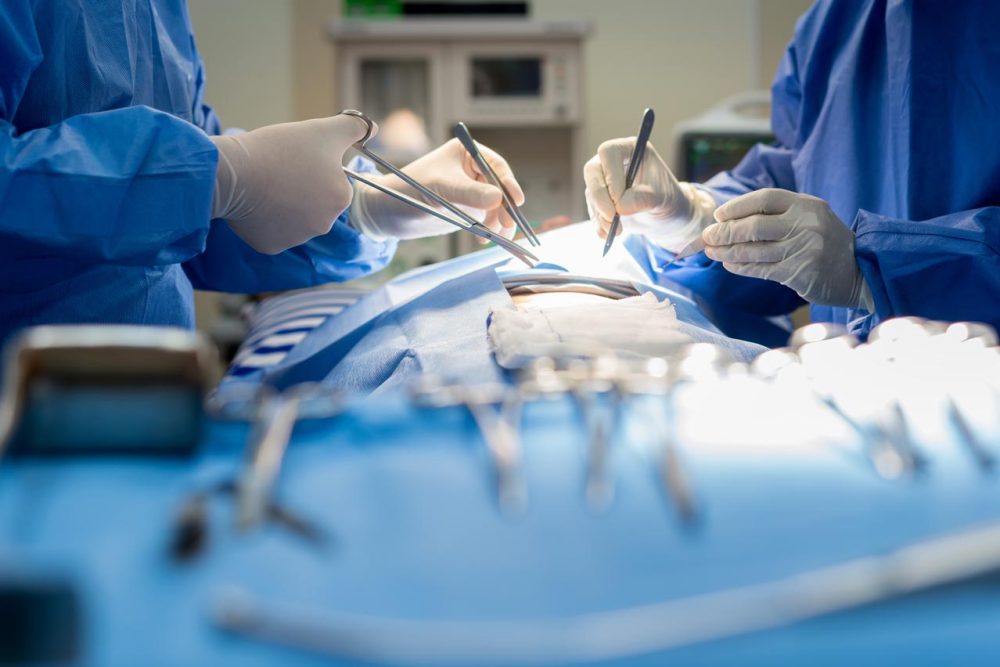Advertisment
GLP-1 RA weight-loss drugs could raise risk of aspiration during surgery

Glucagon-like peptide-1 receptor agonist (GLP-1 RA) drug use appears to be associated with increased residual gastric content (RGC) detected by gastric ultrasonography, a major risk factor for aspiration under anesthesia.
Researchers published this finding On March 6, 2024 in JAMA Surgery.
“Our findings were quite surprising. More than half of the patients on a GLP-1 RA had significant gastric contents on gastric ultrasound before an elective procedure, despite adhering to preoperative fasting. This incidence was significantly higher compared to patients not on a GLP-1 RA, showing a strong link between GLP-1 RA drugs and potential aspiration risk under anesthesia.” said author Sudipta Sen MD, anesthesiologist and associate professor, UTHealth in Houston.
As background, the authors noted that the study had been prompted after incidents of aspiration under anesthesia were reported for patients using GLP-1 RA drugs for weight loss, despite usual fasting before the procedure.
Aspiration occurs when stomach contents enter the lungs.
For the prospective study, investigators enrolled subjects who followed established fasting guidelines before an elective procedure under anesthesia, and who had once-weekly GLP-1 RA exposure.
The primary endpoint was the presence of increased RCG, defined as, “the presence of solids, thick liquids, or more than 1.5 mL/kg of clear liquids on gastric ultrasonography.”
Among the 124 subjects (median age, 56 years, 60% female), the prevalence of increased RGC was 56% (35 of 62) in subjects with GLP-1 RA use compared with 19% (12 of 62) in subjects not taking a GLP-1 RA drug.
After adjustments, GLP-1 RA use was associated with a 30.5% higher prevalence of increased RGC.
Notably, the investigators reported no link between the duration of GLP-1 RA interruption and the prevalence of increased RGC.
“Patients must ensure they disclose their use of this medication to their surgeons and anesthesiologists,” Sen said. “This information is crucial for us to provide appropriate recommendations, such as adjusting drug administration before elective procedures, recommending extended fasting, or rescheduling an elective procedure if necessary.”
The authors noted that in June, 2023, the American Society of Anesthesiologists issued new suggestions to physicians for evaluating GLP-1 RA use before surgery, and for informing patients about related risks of adverse outcomes. These suggestions included the possibility of pausing GLP-1 RA use prior to elective surgery.
“Our study fills a significant gap in the current understanding and management of patients on GLP-1 RAs undergoing surgery. The lack of data had previously led societies to rely on expert opinion for guidance. Our evidence paves the way for informed guidelines and further research to mitigate anesthesia-related risks in this patient population,” said Omonele Nwokolo, MD, anesthesiologist and professor, both in the Department of Anesthesiology, Critical Care and in the Department of Pain Medicine at McGovern Medical School at UTHealth in Houston.
The authors concluded, “Use of a GLP-1 RA was independently associated with increased RGC on preprocedural gastric ultrasonography. The findings suggest that the preprocedural fasting duration suggested by current guidelines may be inadequate in this group of patients at increased risk of aspiration under anesthesia.”





